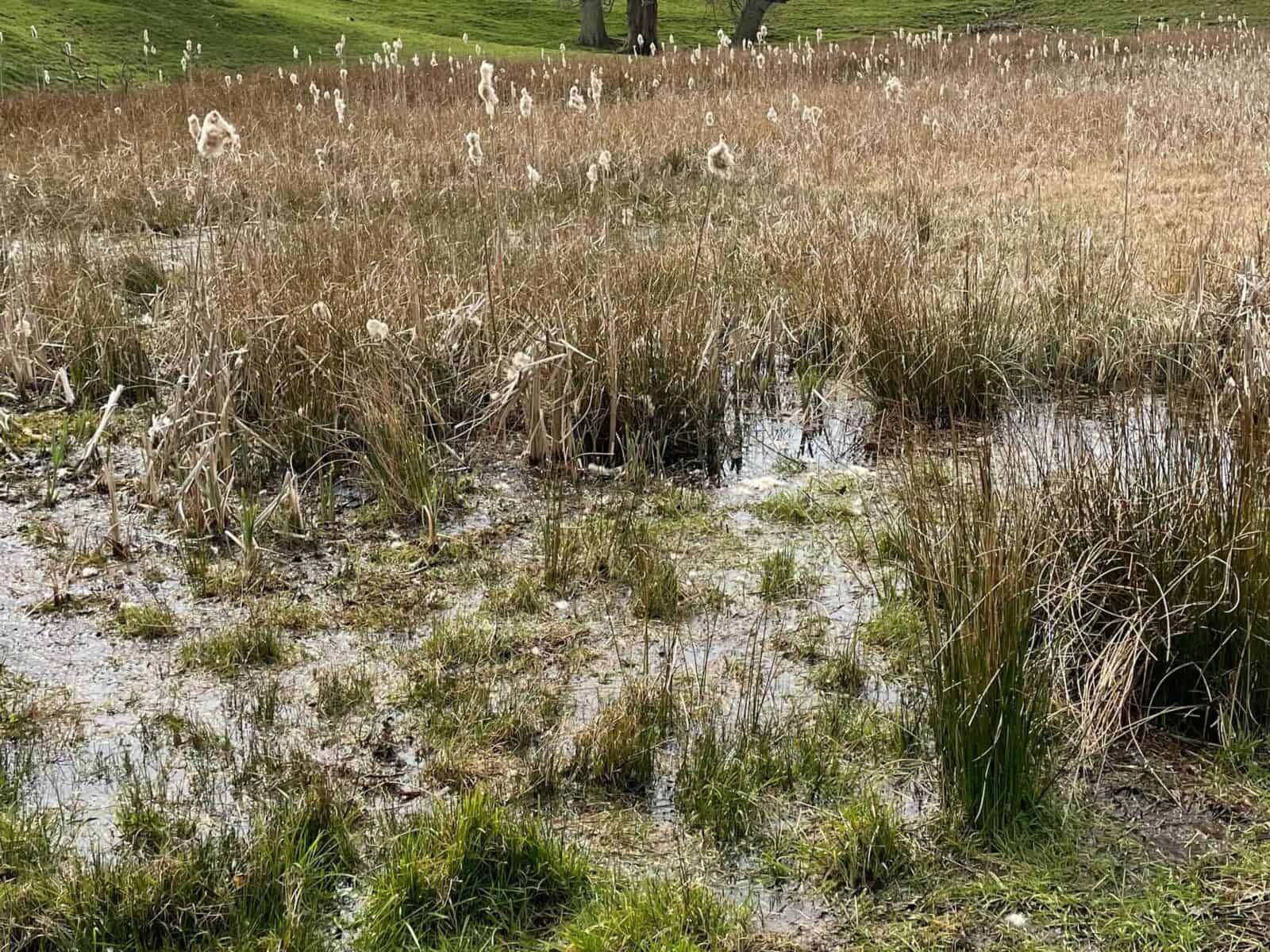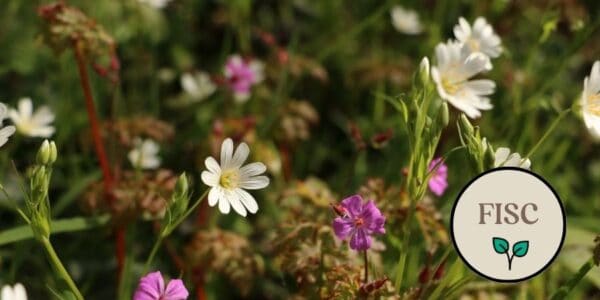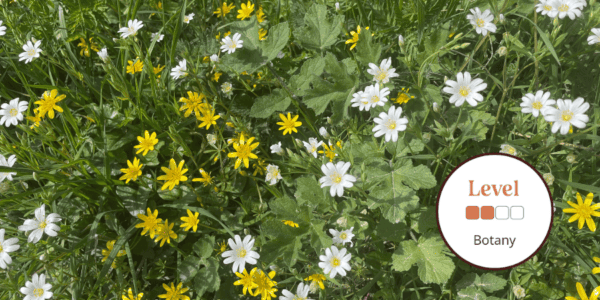This course will introduce you to the identification of aquatic plants, the key features for discrimination, and the importance of these species for ecology, conservation, and recording.
Your course will take place at the Preston Montford Centre which is nestled in the heart of Shropshire and surrounded by a rich range of aquatic habitats home to a wealth of species. You will take advantage of this by learning through a mixture of field trips, using keys to identify plants to family, genus and species, and laboratory/classroom sessions that will provide the opportunity to use microscopes and observe a wide variety of voucher specimens.
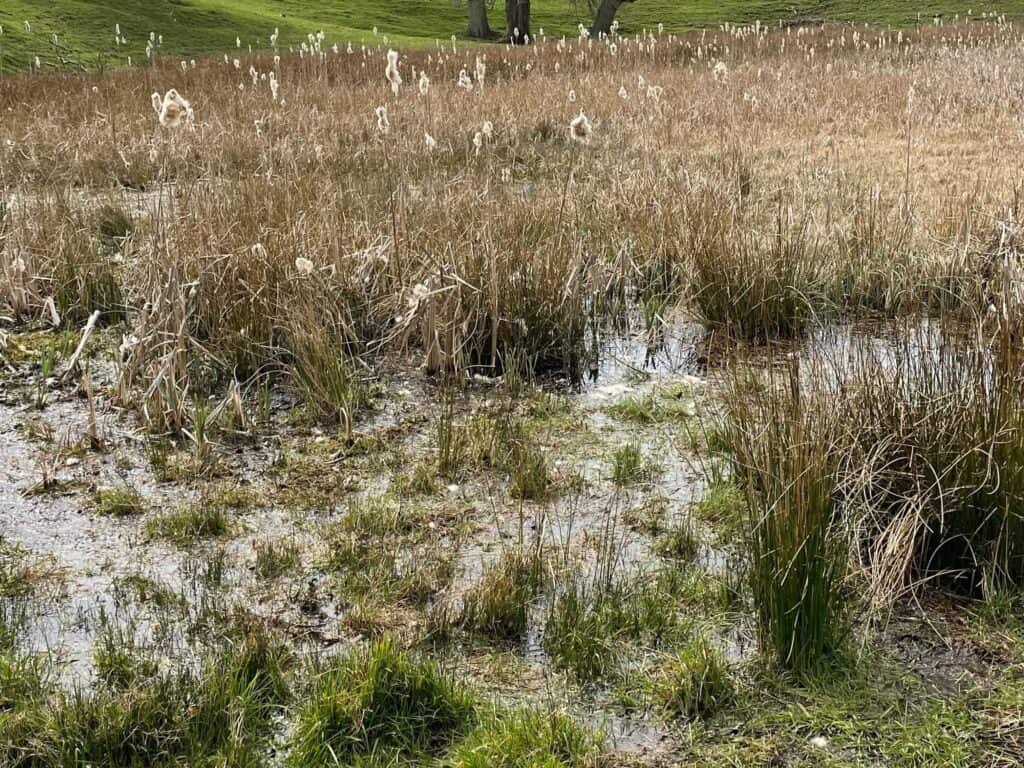
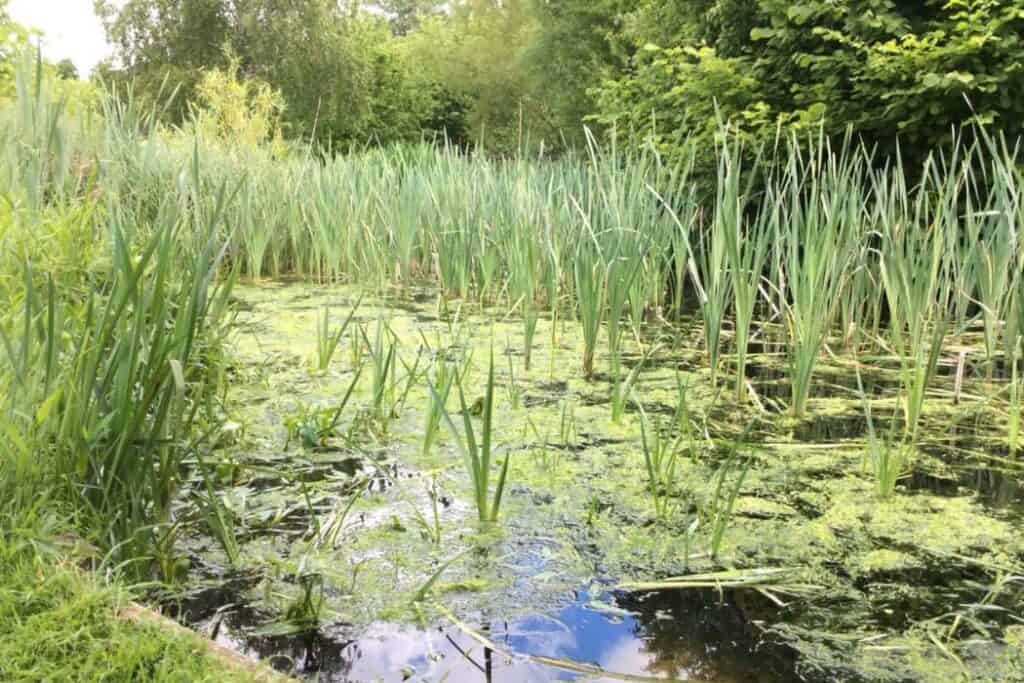
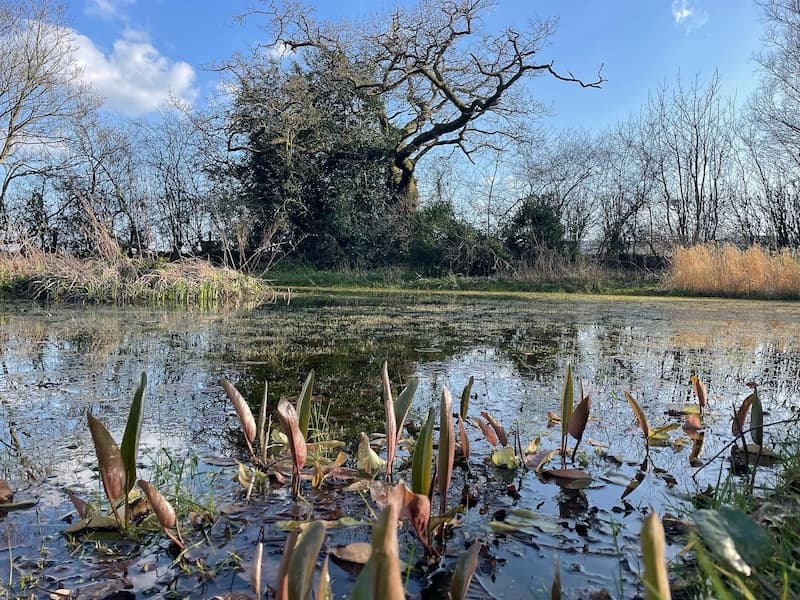
Read More
Aquatic plants can be one of our most challenging groups of plants within the British flora. They can vary enormously not only between different species but even within a species, due to plasticity, in part determined by the changing habitats and seasonal fluctuations in water levels and quality. Aquatic Plants occur in some of our most damaged and contaminated habitats within the British Isles.
The threat from global warming, eutrophication, acidification and other pollutants need to be mitigated against, and accurate identification, recording and assessment is crucial to this. Assessing the impact aquatic plants have can be complex without a thorough understanding of the species and their individual and collective ecological niches, which this course will help you develop!
What will be covered during this course?
The course will be delivered through a combination of seminars, laboratory identification sessions and practical fieldwork. Fieldwork will involve visiting a range of habitats where the specimens can be identified within an ecological context. Specimens may be taken back to the laboratory for examination with lenses and microscopes.
- The major family groups e.g. Batrachium, Ranunculus
- An exploration of the two big families Potamogetonaceae and Ranunculaceae, that contain many challenging and difficult to identify taxa
Comparative analysis of vegetative and flowering parts of the major species, using distinguishing characteristics - Strategies for identifying Aquatic Plants including the use of dichotomous keys and other resources
- Understanding the challenges that come with recording Aquatic species, including hybridisation, plasticity and seasonality
- Using a range of dichotomous keys to identify species
- Understand the importance and role of Aquatic species as indicators of key habitats and ecological niches
- Surveying and collection techniques, as well as ways to maintain the recorders health and safety
- Preparing voucher specimens of aquatic plants for refereeing, and procedures for validation
By the end of the course, you will be able to:
- Identify a range of aquatic plants to family, genus and species where appropriate, using a variety of keys, field guides and other resources
- Critically evaluate the role that aquatic plants have as ecological indicators and their use in indicating habitat type
Who Should Attend? – Natural history enthusiasts, students, rangers, ecologists, and environmental professionals. This intermediate level course is open to anyone with some knowledge of the subject. This course is for those aged 18 and over only.
Knowledge Level – Intermediate. Level descriptors can be found on the following web-page: Framework and Course Level Descriptors
There are two booking options which all include course tuition, meals and refreshments:
- Non-Resident (Breakfast not included)
- Resident (Sole Occupancy)
For course bookings including accommodation please note bathroom facilities may be shared.
MMU Students Information
MMU students – please email [email protected] to book your course place.
Accreditation
This is one of a series of courses (units) run jointly with Manchester Metropolitan University (MMU) contributing to the MSc Biological Recording and Ecological Monitoring and the Postgraduate Certificate in Biological Recording. MMU students complete assessed work after the course. For further details about Manchester Metropolitan University degree programmes please contact:
Department of Natural Sciences, Manchester Metropolitan University, (Shrewsbury Office). Email: [email protected]
See the ‘Example Timetable’ and ‘What’s Included’ sections below for more information about this course.
Upon booking you will need to provide individual details of all attendees
Please email [email protected] if you have any questions.
Assessment
For Manchester Metropolitan University students, the Unit will be assessed through, for example, identification tests, survey reports, field journals, production of keys, essays or other forms of assessment. In course tests are optional and less formal for participants who are not MMU students.
MMU students will be required to complete a portfolio comprising of two parts:
Part 1: A test with a range of specimens. Points awarded for correct identification, and critical comparison between specimen and superficially similar/related species. (Equivalent to 500 words)
Part 2: Collect a group of Aquatic Plants (e.g. Potamogeton or Batrachium Ranunculus, or whorled leaved species). Create voucher specimens, with full biological records. Key diagnostic features to be listed for each species, comparing and contrasting how these differ from analogues species (these can be presented on the voucher specimen or separately as detailed notes). Design and construct a dichotomous key to your collection of specimens selecting strong taxonomic characters, that distinguish them from other species within the collection. (1500 words)
Example Timetable
This timetable is subject to change but should give an outline of what to expect.
If you have booked accommodation and meals with the centre your bedroom will be ready from 3.00 pm onwards on the day of arrival and we ask that you vacate by 9.30 am on the morning of departure.
If numbers are sufficient a station pick up will be arranged at 5.30 pm from Shrewsbury Station.
Please arrive in time for the evening meal at 6.30 pm on Firiday
The course starts after dinner with a classroom session 7.30 pm - 9.00 pm
The course ends at 4.00 pm on the final day.
Time will be made available for eating packed lunches during the day
Friday
During the evening there will be a classroom introduction to the problems associated with identifying aquatic plants.
Saturday and Sunday
To involve a mixture of field trips and classroom based work during the day, and evening sessions either within the classroom or Preston Montford Centre grounds.
Monday
There will be a short field trip on Monday morning followed by a classroom-based test in the afternoon (optional for those not studying for university credits).
What's Included
- Classroom learning covering the theory of the subject
- Field excursions to apply new knowledge
- Expert tuition for which we are renowned
- Clear objectives and progression
- All meals provided
Bursaries and Subsidies
Natural History Bursaries
There are a number of natural history bursaries available to help with the cost of your course. To find out if you and your chosen course are eligible, read more here.
Before You Attend
There will be a member of staff with first aid training and access to a first aid kit on site. If you have special medical or access requirements, please let us know as soon as possible so we can make any necessary adjustments.
What to Bring
- Stout walking shoes or boots (some wellingtons and waders are available on hire from the Centre).
- Warm, waterproof outdoor clothing.
- A hand lens – x20 if possible, but at least a x10.
- Sealable ‘ziplock’ plastic freezer bags.
- Materials for making a grapnel will be available for purchase during the weekend but if you prefer, please bring your own balloon egg whisk and nylon cord.
- Sandwich box and vacuum flask/drinks container.
Recommended Reading
- Rich, T.C.G. and Jermy, A.C. (1998) The Plant Crib. BSBI (Free download)
- Haslam, S., Sinker, C.A. and Wolseley, P. (1971) Water Plants. Field Studies Council (AIDGAP)
- Jermy, A.C. Simpson, D.A., Foley, M.J.Y. and Porter, M.S. (2008) Sedges of the British Isles. 3rd ed. BSBI
- Hubbard, C.E. (1981) Grasses. Penguin
- Moore, J.A. (2014) Charophytes of Great Britain and Ireland. BSBI
- Orton, Bebbington, A. & Bebbington, J. (2018) Guide to Commoner Water Plants. FSC
- Preston, C.D. and Croft, J.M. (2014) Aquatic Plants of Britain and Ireland. Harley.
- Rose, F. and O’Reilly , C. (2006) The Flower Key. Warne
- Stace, C.A. (2010) New Flora of the British Isles. 3rd ed. CUP
- Stace, C.A.; Preston, C.D. and Pearman, D.A. (2015) Hybrid Flora of the British Isles. BSBI
Opportunities to attend this course
-
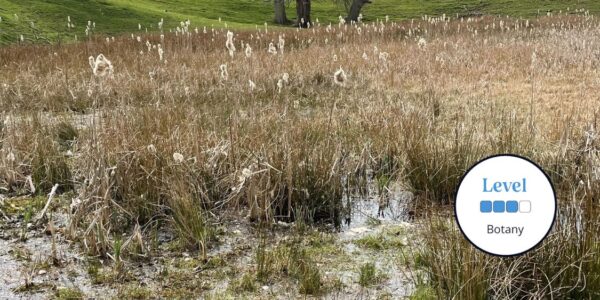
Fri 12, July 2024 18:30 - Mon 15, July 2024 16:00
MMU students - please email [email protected] to book your course place.
Sorry this course is out of stock
Progress Your Learning
This is a training course from the Field Studies Council, delivered by expert tutors with an approachable learning style. After attending this course, you may like to progress your learning with further relevant courses or branch out into other areas of natural history. The Field Studies Council offers both online and in person courses, so you can choose the learning style that suits you best.
The course gives you the opportunity to immerse yourself in a new subject and acquire novel skills. Our online portal gives you time to study at your own pace and fit the lessons around your own schedule.
If you have any questions about our online courses please check our Frequently Asked Questions
Please email [email protected] if you have any questions.
Group Bookings Made Easy
If you have a group of 10 or more individuals wanting to complete one of our courses, our team are available to discuss your options – from discounts to private team courses. Find out more!
You can rest assured that the absolute best content from an expert in environmental education will be at your fingertips. In choosing a Field Studies Council course, you will be joining thousands of people who learn with us each year.

